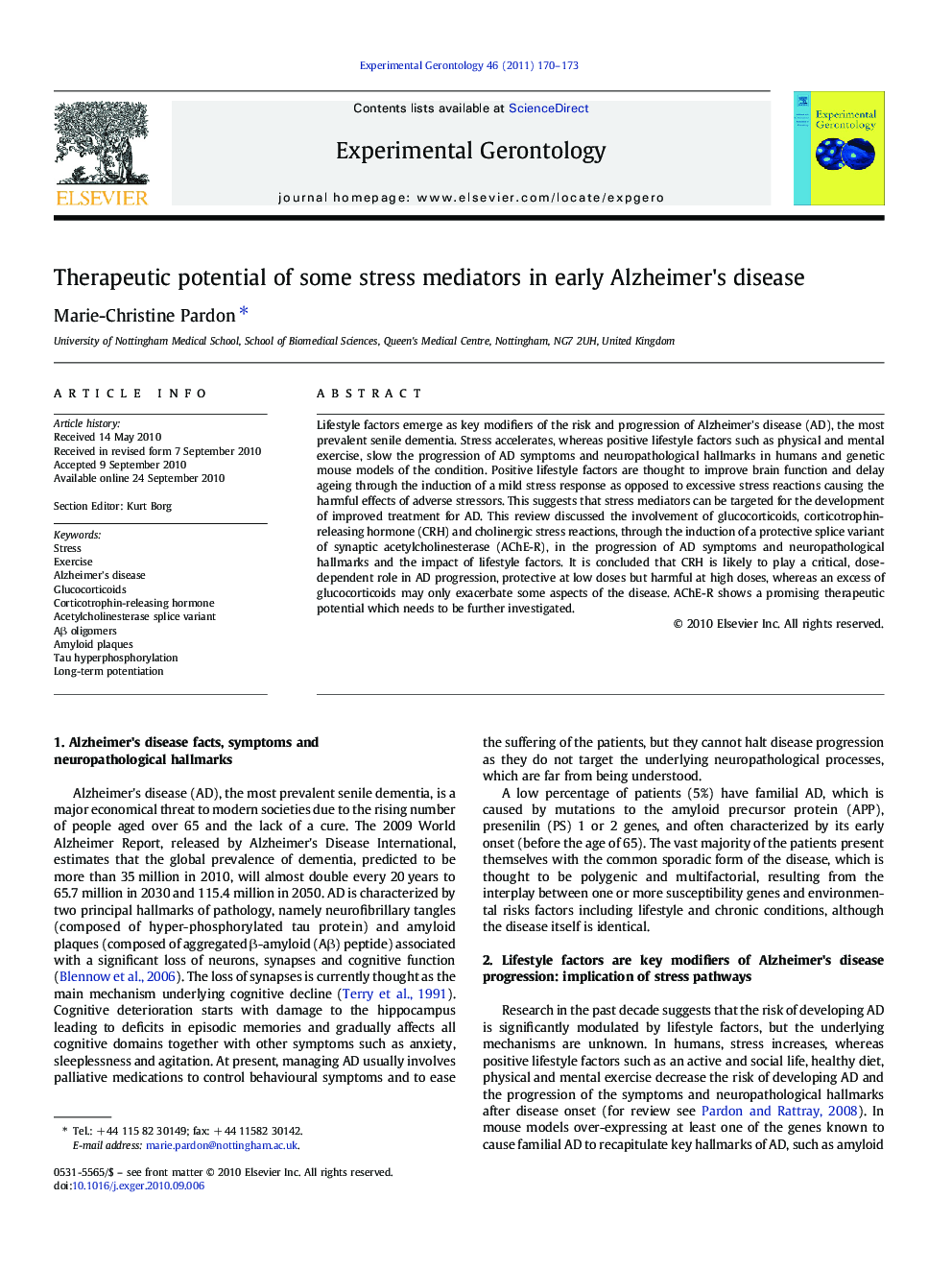| Article ID | Journal | Published Year | Pages | File Type |
|---|---|---|---|---|
| 1907120 | Experimental Gerontology | 2011 | 4 Pages |
Lifestyle factors emerge as key modifiers of the risk and progression of Alzheimer's disease (AD), the most prevalent senile dementia. Stress accelerates, whereas positive lifestyle factors such as physical and mental exercise, slow the progression of AD symptoms and neuropathological hallmarks in humans and genetic mouse models of the condition. Positive lifestyle factors are thought to improve brain function and delay ageing through the induction of a mild stress response as opposed to excessive stress reactions causing the harmful effects of adverse stressors. This suggests that stress mediators can be targeted for the development of improved treatment for AD. This review discussed the involvement of glucocorticoids, corticotrophin-releasing hormone (CRH) and cholinergic stress reactions, through the induction of a protective splice variant of synaptic acetylcholinesterase (AChE-R), in the progression of AD symptoms and neuropathological hallmarks and the impact of lifestyle factors. It is concluded that CRH is likely to play a critical, dose-dependent role in AD progression, protective at low doses but harmful at high doses, whereas an excess of glucocorticoids may only exacerbate some aspects of the disease. AChE-R shows a promising therapeutic potential which needs to be further investigated.
Research Highlights► Lifestyle factors such as stress and exercise alter the risk and progression of Alzheimer's disease. ► Stress which accelerates Alzheimer's disease and exercise which is protective, both induce a stress response. ► Stress mediators are thus likely to contribute significantly to the pathological process in AD and can be targeted for the development of novel therapeutic strategies.
